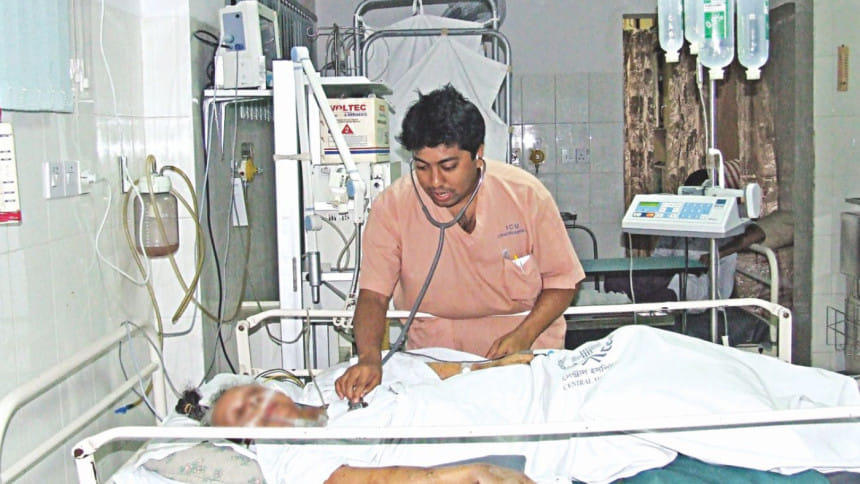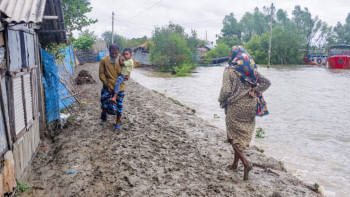A quest for critical care

In a country like Bangladesh, emergency medical care or critical medical services are very scanty. There are extreme low number of Intensive Care Unit (ICU) beds for the entire nation. Dr Raghib Manzoor Dr Raghib Manzoor, who is mainly an anaesthesiologist, shared some insights in this regard with Star Health recently.
Dr Raghib got exposed to critical care medicine while working in the Kingdom of Saudi Arabia as an ICU specialist. There he gained extensive experience on handling critical or emergency patients. Upon returning to Bangladesh, he opened ICU in the Central Hospital. While working there he received numerous phone calls from various hospitals asking for his expertise in escorting critical patients, as they are highly vulnerable and if not attended properly they might succumb to death.
He observed many cases where the patients were transported to other medical facility with an unequipped ambulance and barely any experts accompanying them which eventually lead to the death of the patient on the way. This provoked him to think how he could develop a proper system through which the patients could have been transported in a proper way which could have saved their lives.
Keeping that in mind he asked his team of physicians and nurses from the ICU of Central Hospital to assist him developing an Emergency Medical Service (EMS). He started sending a team along with EMS equipment in the ambulance to provide EMS whenever it was required. This was proven to be very effective in saving many lives. This motivated Dr Raghib in opening Criticare, the first of its kind organisation in Bangladesh providing EMS.
Dr Raghib dedicated himself in developing an effective EMS system in Bangladesh. Following his goal, he with the assistance of Dr Wahidul Alam, an emergency physician based in London, United Kingdom formed Bangladesh Society of Emergency Medicine in 2010 and started disseminating knowledge and information on emergency medicine.
The Society of Emergency Medicine has organised 7 international conferences so far to spread the importance of emergency medicine and EMS. They have successfully rooted the importance of emergency medicine among the fellow professionals with their activities. As a part of their effort, soon there will be a residency programme on emergency medicine in Bangabandhu Sheikh Mujib Medical University (BSMMU) with the help of the Korean government in order to develop efficient physician workforce trained in emergency medicine to cater to the needs of Bangladesh.
Critical care medicine and emergency medicine are inter-related but they are distinctive in their function. The emergency medicine starts from pre-hospital care which is EMS and medical care within the emergency room of the patient. On the other hand, critical care medicine unit starts their job when emergency medicine unit finishes their job in the emergency room and shifts the patient to the ICU.
Dr Raghib has the vision of making EMS free for the people of Bangladesh. Envisioning that, he intends to form a foundation through which EMS will be provided to the patients in need with the support of the government and regulated by an executive body. He also emphasises on the need of a dedicated hotline number which will enable the people to get easy and prompt access to emergency medical services on demand.
Dr Raghib urges the government of Bangladesh to formulate a national EMS council which will regulate and manage emergency medical services of the country. It is needless to say that the capacity development in emergency medicine of the existing medical workforce is a burning issue now.
The writer is a reporter of Star Health. E-mail: [email protected]

 For all latest news, follow The Daily Star's Google News channel.
For all latest news, follow The Daily Star's Google News channel. 



Comments